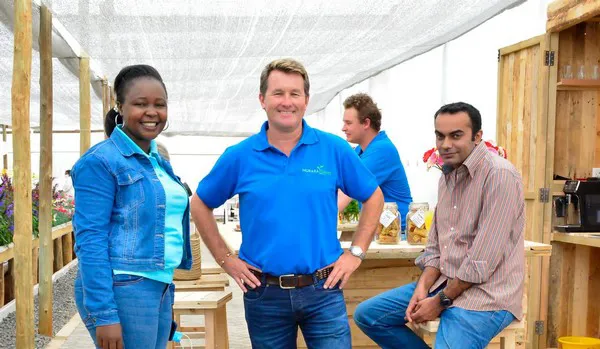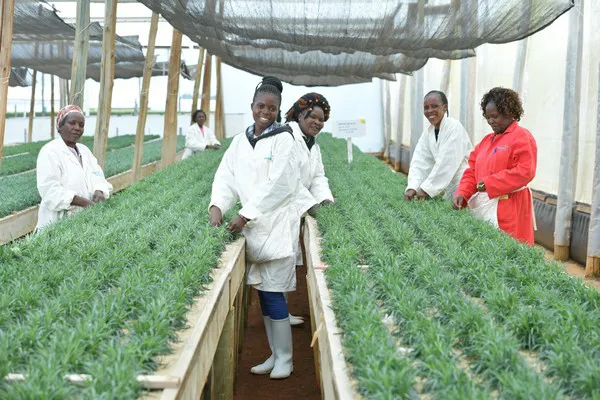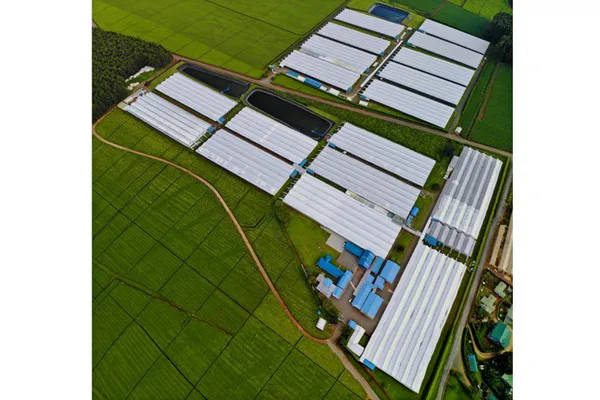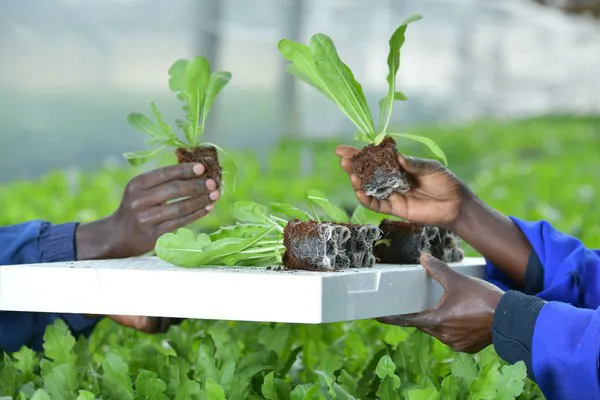“We always felt it would be a great opportunity for Kenyan growers to expand their assortments, and we can now see it taking full effect,” says Eric Bouman, Managing Director of Murara Plants. The Kenyan company is a breeder, propagator, and supplier for an extensive range of cut flowers, pot plants, and garden plants. Working in close collaboration with HilverdaFlorist, they produce about 20-25 million cuttings a year, the majority of which is for export. In this article, Bouman shares his insight on the recent diversification of Kenyan growers’ assortments, the logistical challenges that are limiting growers, and where the future of Murara Plants is headed.
“Kenyan growers are doing well”
According to Bouman, these past years have been challenging as Murara Plants relies heavily on exports, and the Kenyan growers they supply were dealing with the challenges as well. “The start of the pandemic was especially challenging for the local growers. European customers canceled their orders and Kenyan growers were unable to export for a number of weeks. Luckily, the situation has improved since last year, and Kenyan flower growers have been doing very well. The prices for the flowers have been good, and the only thing that is limiting them is the logistical challenges. Of course, when growers are doing well, that is beneficial for us as we can then provide them with more plants.” 
Sea freight as an alternative
For the near future, Bouman thinks that the biggest concern for growers will be the transportation of their products. “From freight availability to the increased cost, it is challenging for Kenyan growers to get their products to Europe. With the air cargo capacity being limited and the costs so high, growers need to think outside of the box. As a result, sea freight is an alternative and it might start to play a much bigger role in our industry’s future.”
Yet this switch to sea freight does not come without its own challenges. “If our clients’ flowers get shipped to Europe by sea it will take longer than by air freight. This is something that we need to take into consideration concerning the vase life of the flowers that our clients’ export. Some varieties are more suitable for this than others. This is something that we want to focus on more, as we notice a growing demand for sea freight shipments. In addition, we are discussing with freight forwarders to allocate added container space to plant propagators as well as for flower growers, as we need to get our products out there as well.”
Diversification in Kenya
The majority of the Kenyan growers have been focusing on growing roses. Yet according to Bouman, this has recently been changing. “These last two years, rose growers have been diversifying their assortments and starting other productions, such as summer flowers and other types of flowers also for packed at source bouquets. This is a great way for the Kenyan growers to benefit from the current high demand that there is for flowers in general. This diversification is also advantageous for us, as we have a large assortment and can provide them with young plants and cuttings, for example, three different species of Limoniums, Gypsophilas, Gerberas, Dianthus Raffines, Carnations, Scabiosa, and of course Alstroemerias that they require for bouquets.” Now that African production is also getting stronger for other flowers, this is giving Murara Plants a wider market to sell to. “We have always felt that more diversification in Kenya and East Africa would be a great opportunity for us and HilverdaFlorist, it is very exciting to see this is now taking effect.”
The future of Murara Plants
Bouman shares that, while things have been going well, there is still a lot of exciting potential in Murara’s future. “We want to continue working on improving the efficiency on our farm, by enhancing our infrastructure. We are also considering putting up a Tissue Culture facility in Kenya. That way we can be much closer to the source and be less reliant on imports, which of course comes with additional risks. In addition to propagation, we also do extensive flower trials, which I think will also play a bigger role in keeping the selection process closer to the source.”
For more information:
Murara Plants Kenya
[email protected]
www.muraraplants.com
